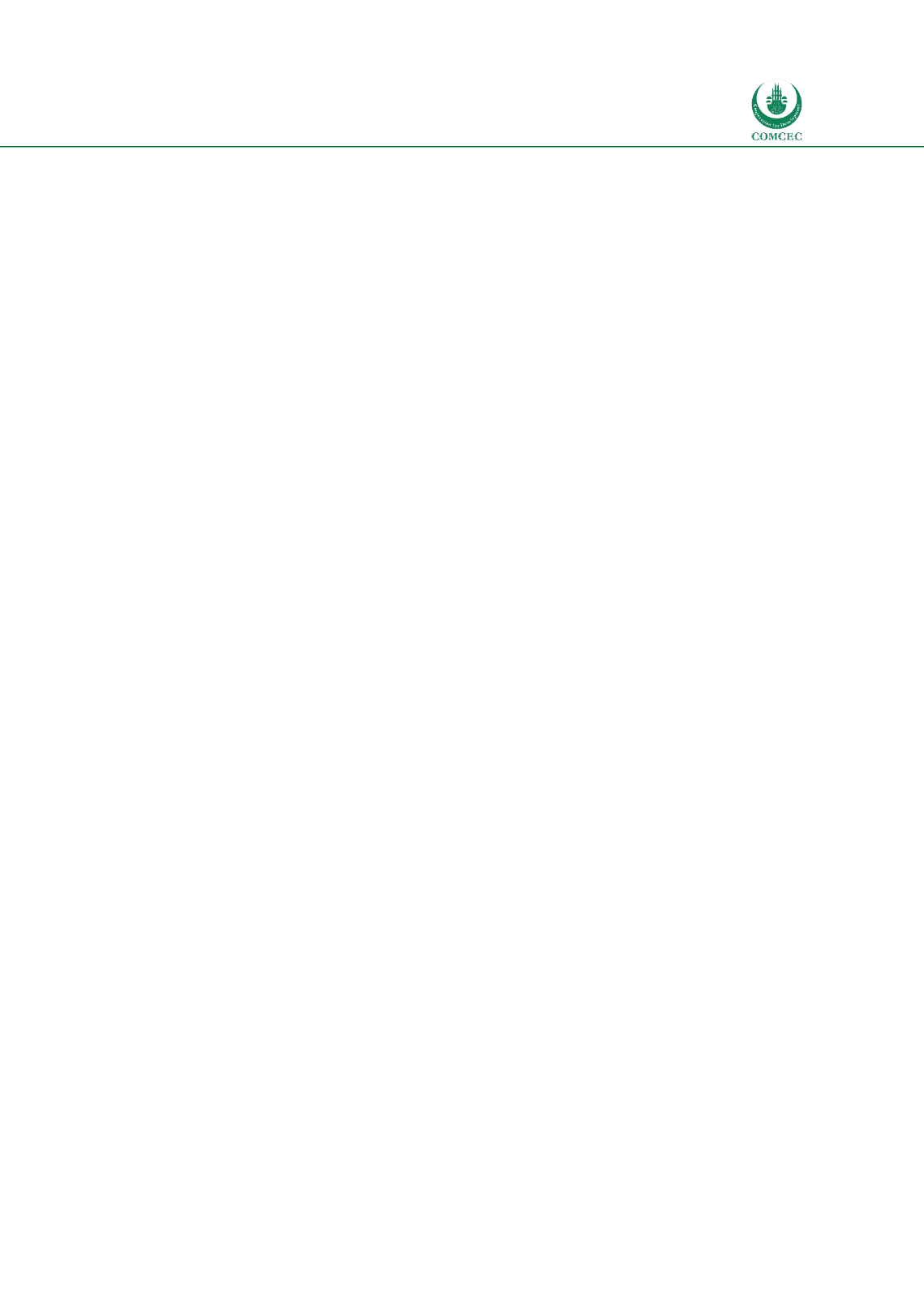

National and Global Islamic Financial Architecture:
Prolems and Possible Solutions for the OIC Member Countries
149
of account holders and ensure an effective operation of loan and credit system; and to ensure
the confidence and stability in financial markets. In addition, BRSA is tasked with “regulating,
enforcing and ensuring the enforcement thereof, to monitor and supervise the implementation
of establishment and activities, management and organizational structure, merger,
disintegration, change of shares and liquidation of banks and financial holding companies as
well as leasing, factoring and financing companies without prejudice to the provisions of other
laws and related legislation” (Gecer and Teker, 2011). Thus, BRSA provides “a single integrated
regulatory framework applied to all banks with references identifying provisions applying
specifically only to Islamic banking and banks” (Song and Oosthuizen, 2014: 13).
As in single regulative regime, the supervision of all banks including Islamic banks are subject
to BRSA, as the single supervisory authority.
As regards to
takaful
provisions in Turkey, the Undersecretariat of Treasury is the only
regulatory and supervisory authority along with conventional insurance (Batur, 2014). It
should be noted that sovereign
sukuk
is issued by the Undersecretariat of Treasury and
regulated by CMB.
As the third regulatory body, the CMB of Turkey is the regulatory authority for stocks in
general and the Participation Index at the Borsa Istanbul; corporate sukuk, and collective
investment schemes including pension funds (Şagar, 2013).
To provide co-ordination among various regulatory and related bodies, the Financial Stability
Committee was established in 2011 with the objective of “identifying and mitigating emerging
systemic risk, to coordinate policy actions, and to better integrate micro- and macro-prudential
perspectives among institutions” (Batur, 2014). The Financial Stability Committee is
comprised of the Undersecretary of Treasury, The Governor of CBRT, The Chairman of BRSA,
The Chairman of CMB, The Chairman of SDIF under the chairmanship of Deputy Prime Minister
for Economic and Financial Affairs responsible for the Undersecretariat of Treasury.
As regards to Capital Adequacy Framework, the BRSA follows the BCBS regulatory framework
for minimum capital adequacy under the Basel II and Basel III standards for all banks including
participation banks, which became compulsory for the banking sector since September 2013
while BASEL II has been valid since July 2012 (Thomson Reuters, 2014). Accordingly, “the
regulatory framework contains a single set of capital adequacy requirements, which are
applicable to all banks. Thus, no distinction is made between the capital requirements that
apply to Islamic banking/banks and conventional banking/banks” (Mej
a
et al
., 2014: 18).
Although, In Turkey, the BRSA determines CAR for all banks including participation banks as
8% (Thomson Reuters, 2014: 63), CAR for Turkish banking sector was 15.5% as of December
2015.
4.11.3.
Shariah
Governance Framework
Being a secular country,
Shari’ah
formally does not have any legal implications in Turkish law
despite the fact that in everyday life individuals make references to
Shari’ah
in shaping their
religious practice. The Presidency of Religious Affairs under the Prime Ministry operates a
Fatwa Council to respond to the arising issues including individual queries, which include
commercial, business and finance related matters also. However, their judgements do not have
any formal implications on the operations of participation Banks in Turkey.
















